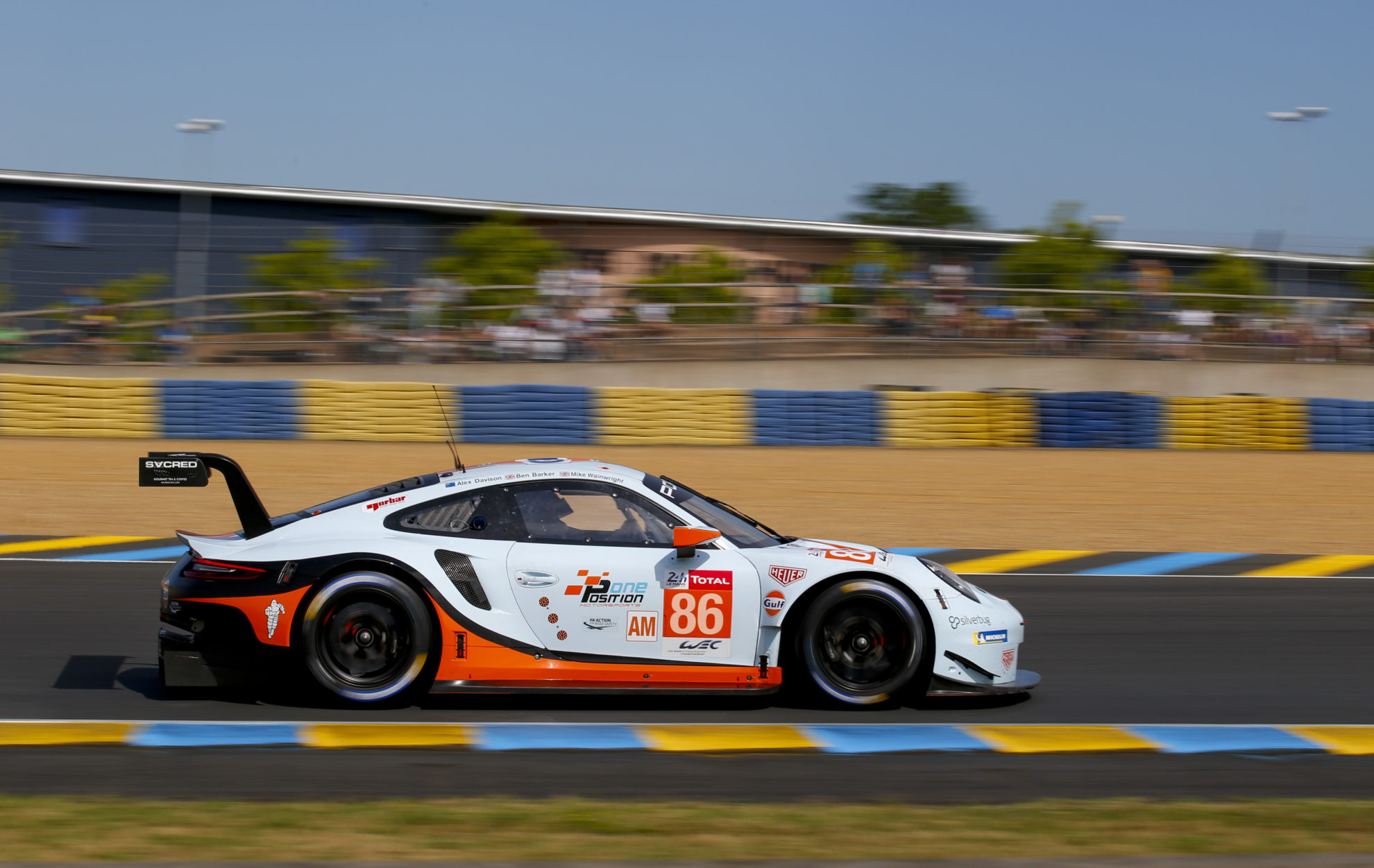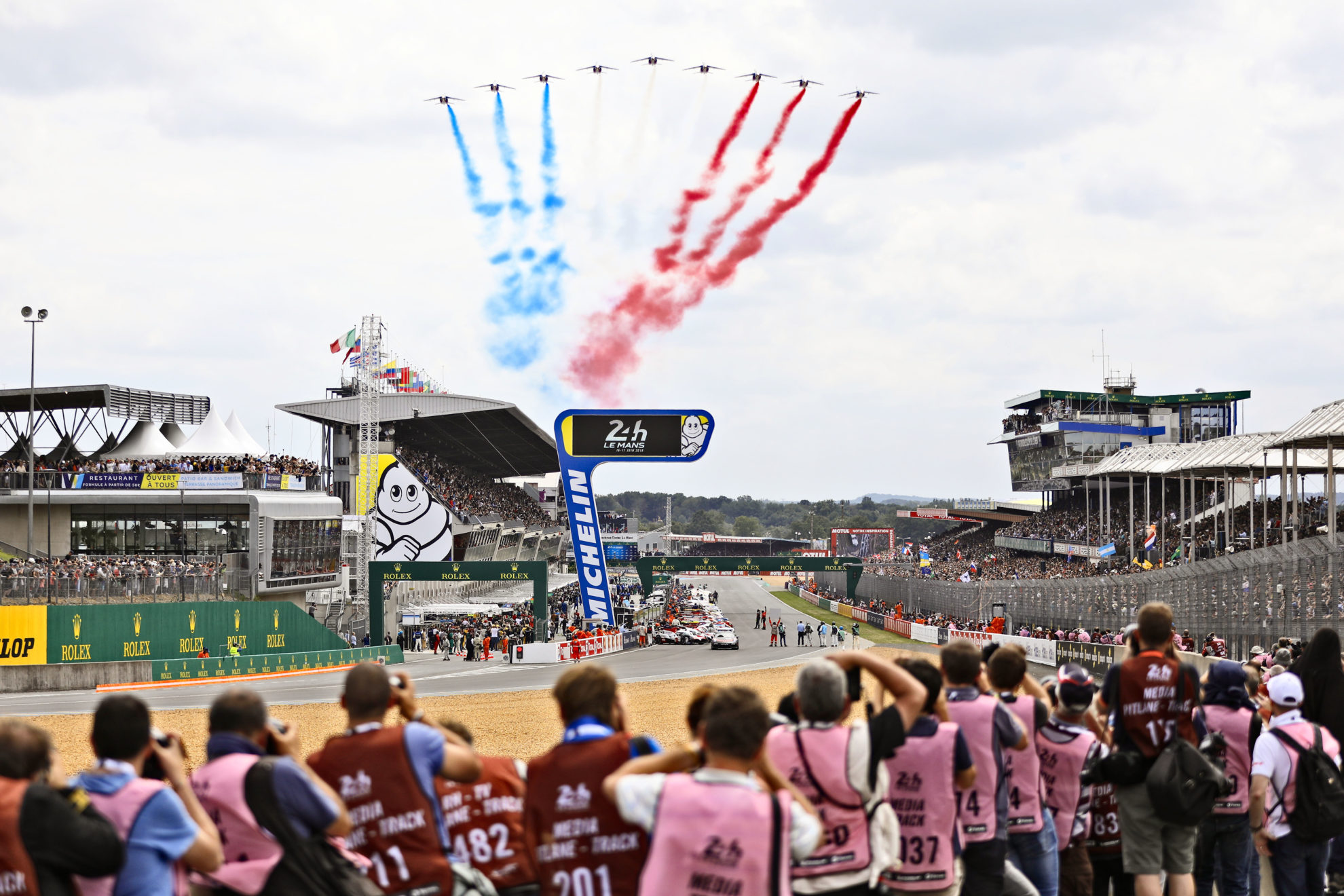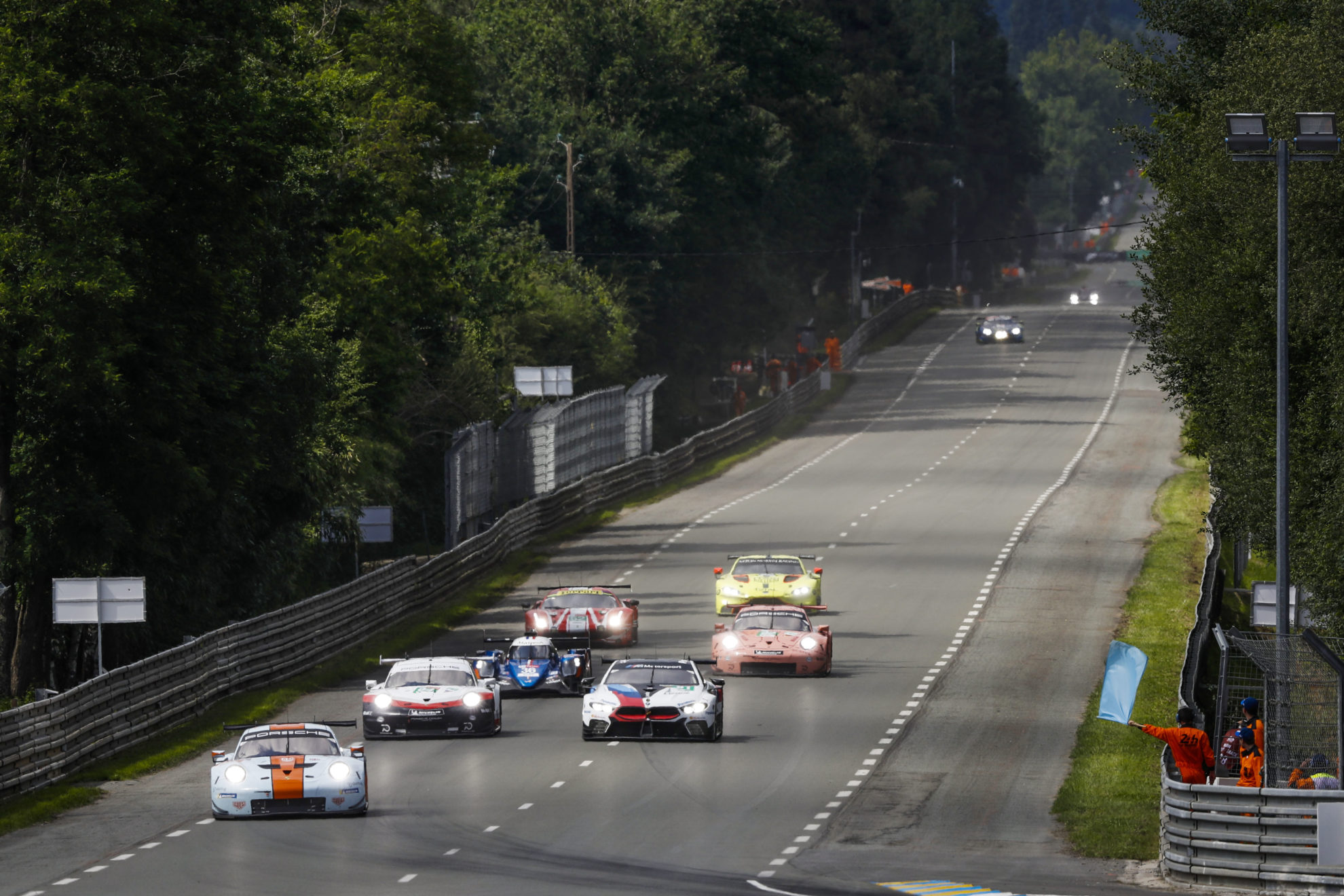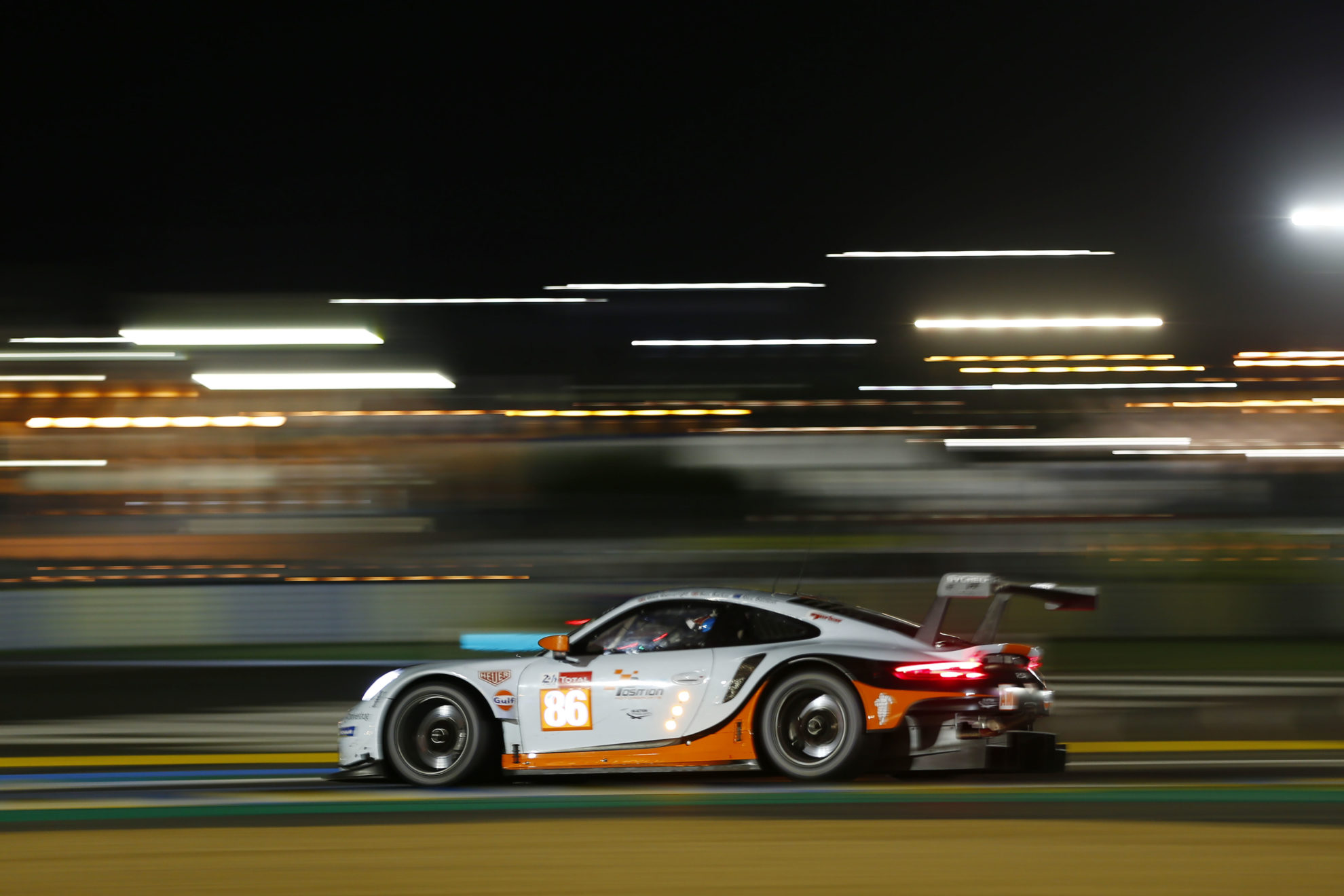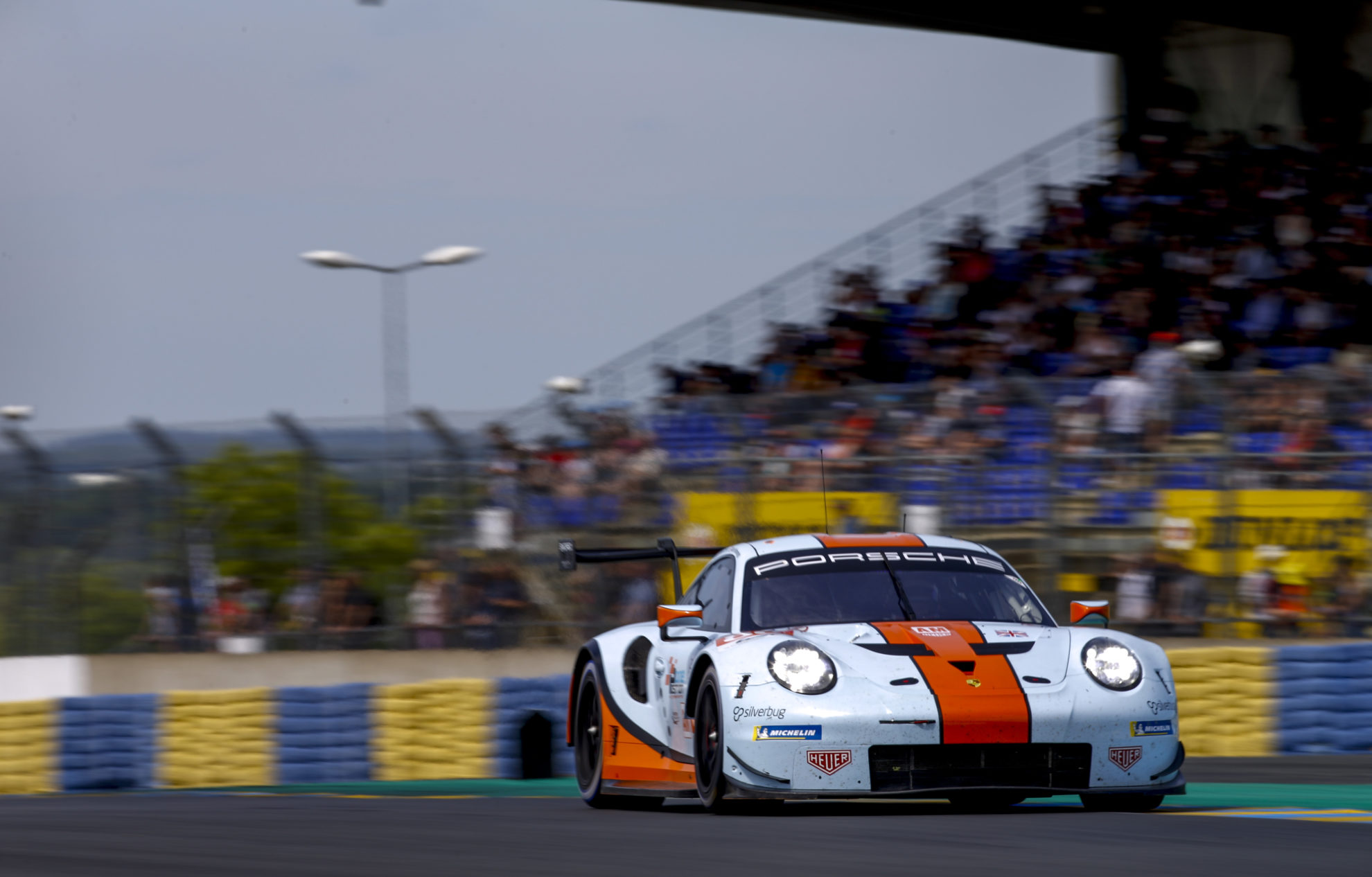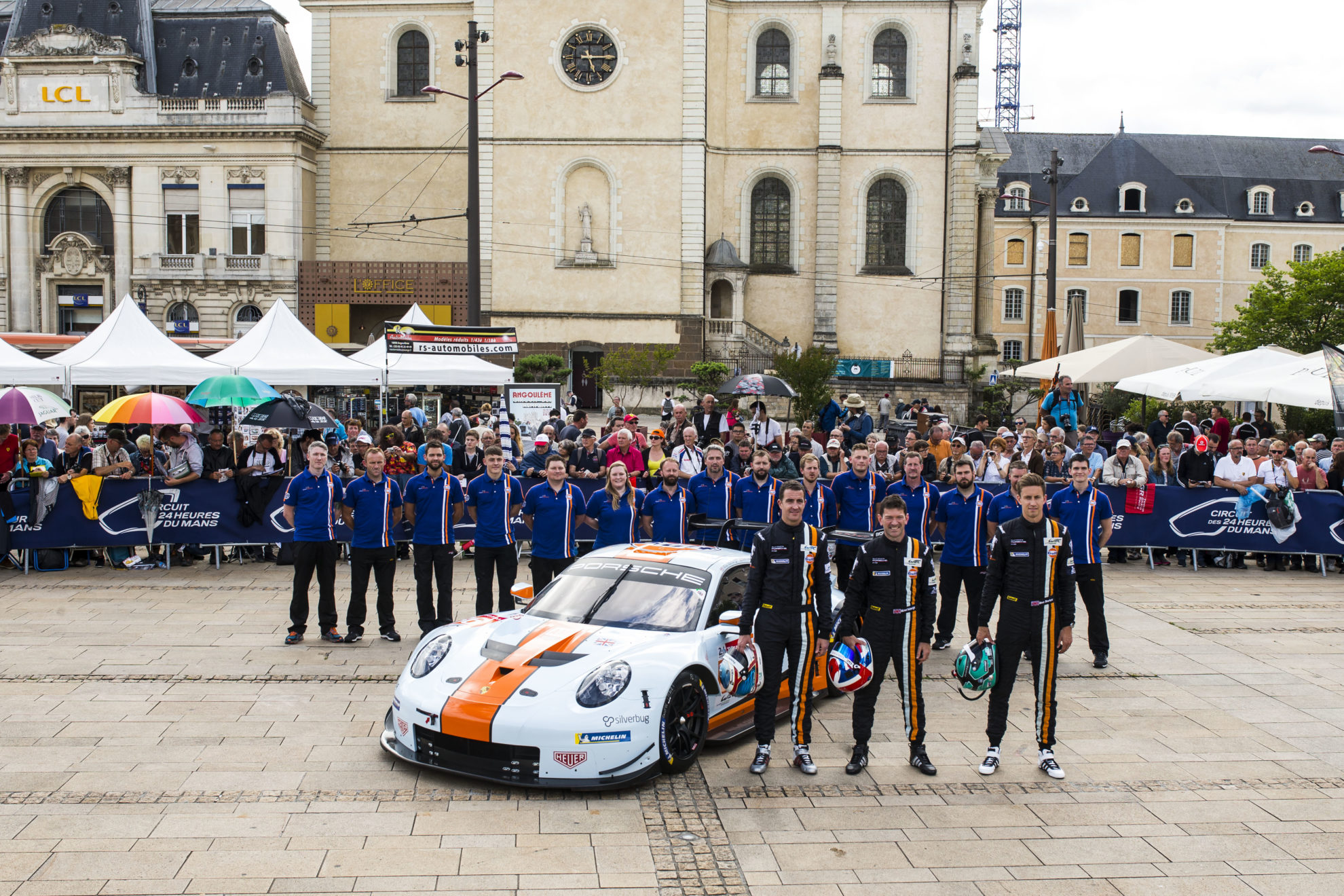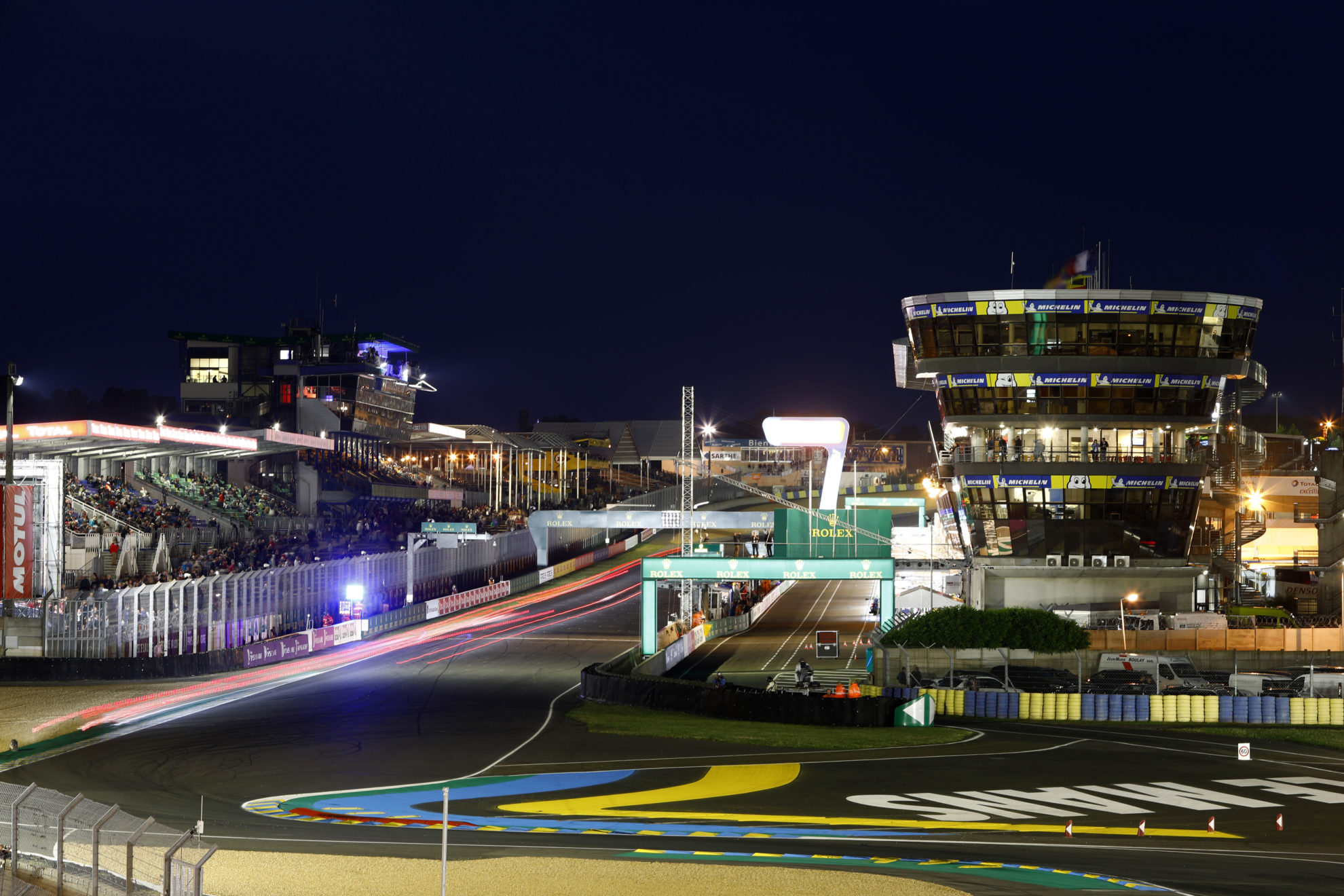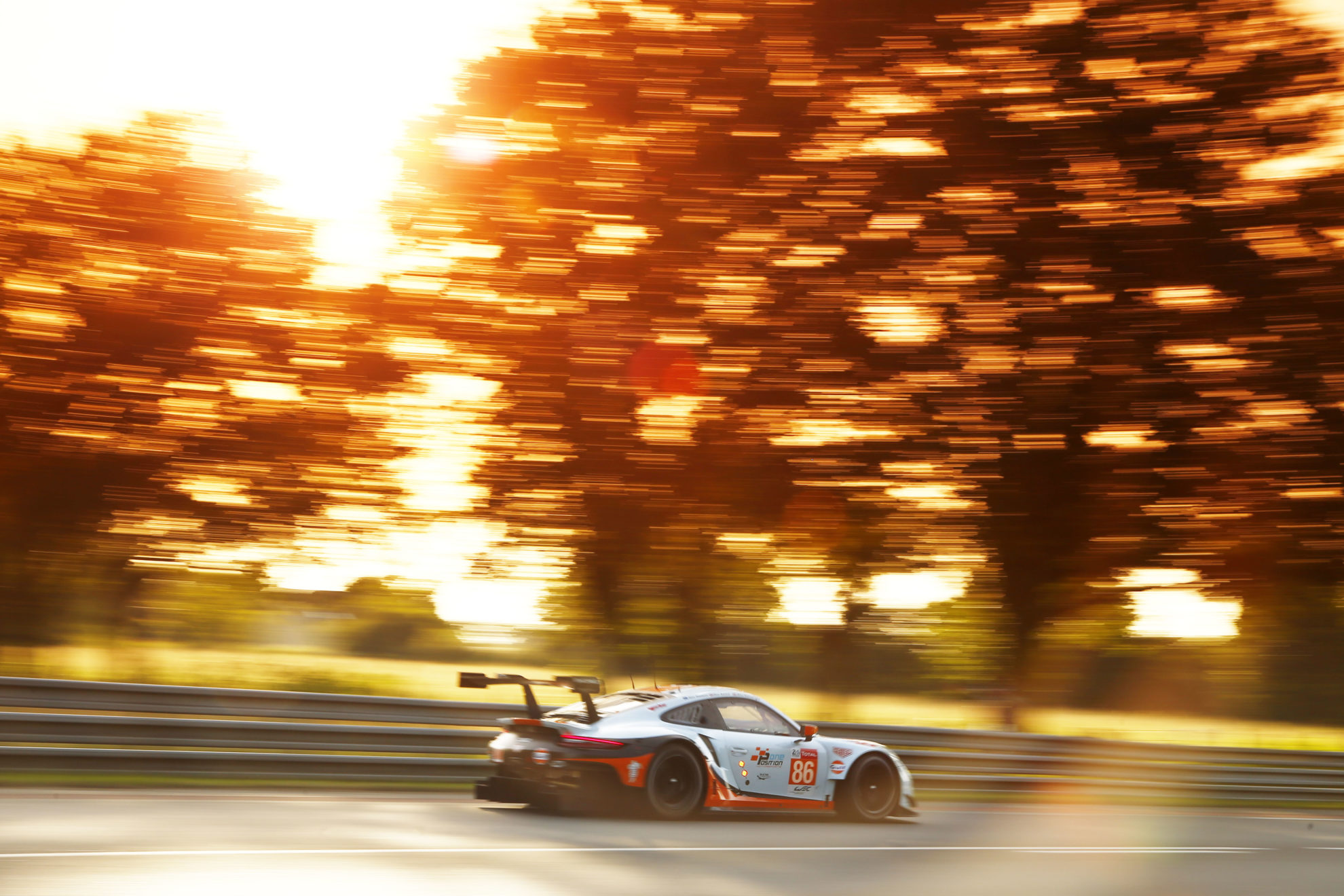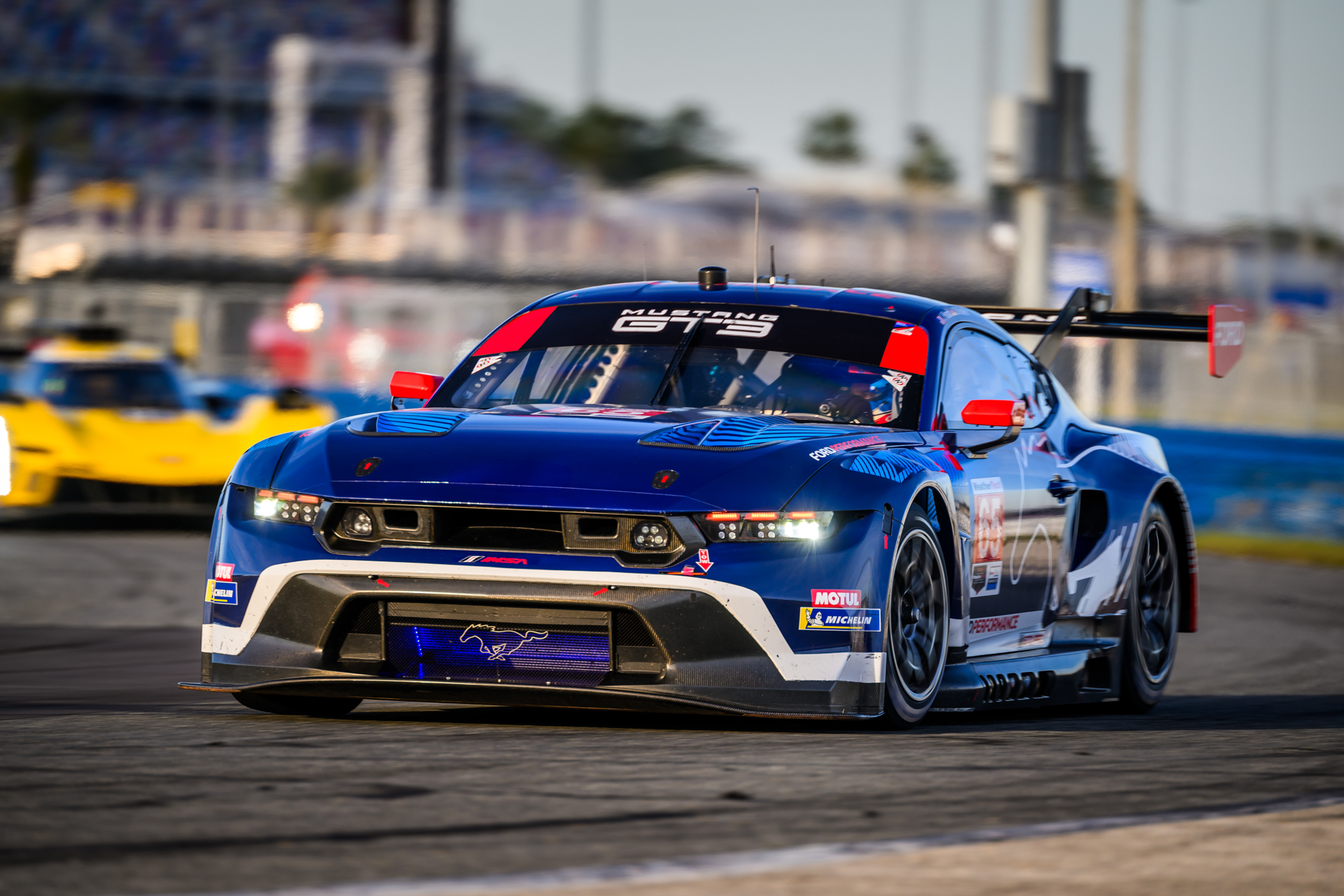Ben Barker might not have achieved the result he and the Gulf Racing team were looking for at the Le Mans 24 Hours, but the British driver at least left the French endurance classic with his reputation enhanced by another stellar performance at the wheel of the #86 Porsche 911 RSR.
Armed with the latest mid-engined version of the RSR for their third attempt on the 24 Hours, Barker and Gulf were hoping to celebrate the twin anniversaries of Porsche’s first sportscar and the Gulf colours’ first appearance on a Le Mans winner, but were ultimately to be denied after a strong start to the week-long event.
Building on the pace shown at the opening round of the FIA World Endurance Championship in Belgium last month, Barker kept the #86 amongst the quickest LMGT-Am runners throughout practice and qualifying, before eventually notching the second fastest time in the final session to line the iconic blue-and-orange machine up for a run at race honours.
“The fastest times in qualifying at Le Mans tend to come in the final night session, and we were going for it,” Barker confirmed after his 3m 51.391secs effort put the #86 car 47th in the field of 60 entrants, “We’d already shown the potential of the Gulf car in first qualifying, and really wanted to be the fastest Porsche in the LMGT-Am class, but the first run was thwarted by a red flag and, with the same tyres on the car for my final run, the last couple of tenths were just out of reach. However, second in class – especially one as competitive as this – is nothing to complain about. Having a fast car is what’s important at Le Mans and we definitely had one of those.”
The Cambridge native was still in combative mood when the race got underway on Saturday afternoon, and wasted little time in moving the Gulf machine to the head of the GT-Am pack, enjoying a doorhandle-to-doorhandle battle with former Porsche Supercup rival Matteo Cairoli on the opening lap.
“I finally made the pass at Mulsanne corner, but we’d be fighting for position since Tertre Rouge some 6km back up the track,” Barker enthused, “We passed and re-passed each other going into the two chicanes, but Matteo out-braked himself and went over the kerbs at the second one, which meant I got a better exit and that gave me momentum going down to Mulsanne. It was quite a scrap, especially on the opening lap of a 24-hour race, but we raced each other fairly and there was never any contact.”
Once at the head of the pack, Barker was able to extend a gap to his pursuers, even when former F1 driver Giancarlo Fisichella assumed second spot, and comfortably held the class lead for 40 minutes until a right-rear puncture – thought to have been caused by a shard of carbon fibre left over from someone else’s accident – forced him to pit ahead of schedule. Having retaken the lead when the rest of the field pitted for their scheduled fuel and tyre stops, and having repeatedly proven that the #86 was the fastest car in the GT-Am category, Barker eventually handed over to team-mate Mike Wainwright but, despite continuing to put in respectably quick times, the Gulf team’s race would turn on an accident at the Indianapolis corner shortly after the change over that left the car in need of lengthy bodywork repairs.
Rejoining four laps down, the British entry was thereafter playing catch-up, its pace no longer enough to overcome the high level of reliability in the class. Despite fighting on through the night and into Sunday, Barker, Wainwright and third driver Alex Davison were only able to lift the #86 to tenth place by the chequered flag, although the 27-year old did emerge with not only the fastest GT-Am lap of the race at 3m 52.600secs, but also a new lap record to boot.
“Everything about this race is a testament to both Porsche and the Gulf team,” Barker insisted, “Not only was ours the quickest car out there, but it also survived quite a hefty shunt that many other cars would not have. Mike had scrubbed off some speed but was probably still doing in excess off 100km/h when he hit the wall, and the damage was limited to the bodywork and a bit of tweaked steering geometry. The #86 continued to run quickly after that, and the work of the Gulf crew was exemplary, both in repairing the car and with some faultless pit-stops throughout. They managed the strategy perfectly, and their efforts would certainly have been noticed by Porsche.
“Of course, the final result is not what we were hoping for and it’s frustrating that, after two solid performances in 2016 and ‘17, our luck changed just as we got a fast car, but these things happen. It was a bitter-sweet weekend at a race that’s always full of emotion – I’d have loved to have been going home with a trophy, but a new lap record will look just as good on my CV… until next time!”
While Barker and the Gulf team will have to wait a year to return to Le Mans, round three of the FIA World Endurance Championship takes place on home soil, at Silverstone, over the weekend of 17-19 August.
